
Nature’s Adderall
Doctors widely prescribe Adderall as a stimulant drug for treating ADHD and narcolepsy. Few even know about nature’s Adderall.
People now widely recognize that many often use and misuse it as a recreational drug and performance booster.
A combination of amphetamine salts composed Adderall, and researchers know that amphetamines can be addictive.
Adderall is often helpful when prescribed for certain conditions. However, it can be more dangerous for those who misuse it or take it for fun. This article will cover the negative side effects of Adderall. We will also explain how it works in your body.
You will discover a safer herbal alternative to Adderall, one to quickly consider if you show symptoms of ADHD. We will focus on the benefits of herbs. You will learn how to make Nature’s Adderall syrup using Ashwagandha and Lemon Balm. This syrup can help support your focus, energy, alertness, attention, vitality, and overall well-being.
How Does Adderall Work?
Adderall works by stimulating the central nervous system (CNS). It causes the release of serotonin, dopamine, and norepinephrine. These chemicals help with conditions like ADHD and narcolepsy. The drug practically improves attention.
This drug helps people with ADHD focus better and reduces hyperactivity. However, it can also cause many unwanted side effects.
Narcolepsy is another condition that causes excessive daytime sleepiness. Doctors often prescribe Adderall for this condition because it acts as a stimulant.
The herbal remedies I will share with you are 100% natural, safe, and free of chemicals. Manufacturers do not make them in labs! Natural alternatives to Adderall do exist.
Adderall Side Effects
Many possible side effects could occur from taking Adderall, including:
- Risks to patients with serious cardiac disease and issues
- Increased blood pressure and heart rate
- Psychiatric adverse reactions and manic or psychotic symptoms may occur in some patients
- Long-term suppression of growth in pediatric patients:
- May cause seizures
- May cause serotonin syndrome
- Motor and verbal tics and worsening of Tourette’s syndrome
- Loss of appetite
- Insomnia
- Gastrointestinal problems and abdominal pain
- Emotional lability, anxiety, and irritability, nervousness
- Nausea and vomiting
- Fevers
- Weight loss
- Headaches
- Dry mouth
That’s a long list, isn’t it? They fool you into believing that you are using a stronger medicine, like lab-made pills. This makes you spend more of your hard-earned money on them.
They don’t tell you what triggers to avoid. They don’t explain which natural remedies help the root cause. They don’t mention how gut health affects your mental health. They don’t even talk about nature’s liquid Adderall.
They also don’t share a simple breathing exercise that can relieve brain fog. And there’s much more to learn.
My friends call me their ‘health guru’ because the remedies I share actually work! And I don’t take any credit for it, everything I learned is from the best wellness guide out there. This includes the Adderall alternative I am sharing now.
It taught me simple things to do in the morning, afternoon, and evening to combat the worst health conditions, and how to replace over-the-counter drugs. I’ll leave a link for you here to check it out!
Nature’s Adderall
Now that you have learned more about Adderall it becomes apparent that this drug may be helpful, but can be equally or more dangerous for your health and well-being.
Luckily there are herbs that can support you with many of the aspects of the conditions that Adderall usually treats. These herbs offer a healthy stimulating effect that can help boost your energy and focus.
This combination is also useful as a tonic during studying, athletics or any of the activities which Adderall is commonly illicitly used for.
Ashwagandha and Lemon Balm are the plants we have chosen for their various benefits and energetic qualities. These herbs can be used as a Natural Adderall and can improve and maintain your health in so many ways.
Next, you can read more about each of these herb’s benefits in this context and a step-by-step recipe for a Natural Adderall Lemon Balm and Ashwagandha Syrup.
Lemon balm
Lemon balm is a much-beloved herb that is part of the mint family, it is an aromatic herb with a unique citrus sour taste. This herb has been used since antiquity, it is well known to have an uplifting effect that can work on all levels; your mind, body and spirit.
Melissa officinalis is used for many other benefits and herbal actions, it offers support for the digestive system, nervous system, cardiovascular, and thyroid.
In this context, it can be used as a supportive herb for those with ADHD and Narcolepsy ( the main conditions that Adderall is prescribed for).
It can definitely also be used in place of Adderall used outside of prescription, as a natural memory booster, uplifter, and for improving cognitive abilities.
In the correct dosage, Lemon Balm also offers antidepressant and anxiolytic (anxiety-relieving) effects. It is a restorative herb that helps to soothe stress, supporting you to align to a calm state while at the same time improving alertness, focus, and mood.
These specific benefits can be particularly helpful if you are dealing with ADHD.
You can make a Lemon Balm tea (the taste is not amazing), an infused oil, a syrup, salve, or tincture. I personally make my own Lemon Balm tincture at home, so I can add it to any other herbal tea I’m drinking, or just take a few drops when needed.
My daughter doesn’t have the time to prepare it at home, but thankfully she found this professional apothecary that provides 100% organic and non-GMO Lemon Balm Tincture. Check it out!
The uplifting nature of Lemon Balm combined with its effectiveness for sleep disorders and improving sleep quality can lead to its usefulness if you are dealing with excessive daytime sleepiness (Narcolepsy).
Ashwagandha
The effects of the plant include increased stamina and longevity. It enhances your body’s resilience to stress and promotes the health of the body and brain which may make it useful when dealing with conditions that Adderall is often prescribed for as well as for its illicit uses.
This is for those with ADHD or simply those wanting to boost academic performance. Ashwagandha can enhance the functioning of the nervous system and brain. It also improves memory.
It is a powerful brain tonic that has been found to modulate the neuro-endocrine-immune systems. Anxiety or depression are well-known symptoms of some of those struggling with ADHD and Ashwagandha has both anxiolytic and antidepressant benefits.
Withania Somnifera can also be taken for the purposes of improving sleep quality, it may be helpful for alleviating this as one of the possible root causes of Narcolepsy.
As it also has stimulating ,rejuvenative, and endurance boosting effects, which can help you deal with the symptoms of narcolepsy during the day.
Ashwagandha is often used as a natural way to improve physical performance, endurance, and recovery; this can make it useful for those in athletics or if you are seeking a natural legal performance booster besides using it in a recipe like the one below for nature’s liquid Adderall.
Other well-known remedies to help you fall asleep faster and actually get the rest you need over the night are Valerian Root, Hops, Chamomile, and Passionflower.
If you can’t put your hand on those easily, you can get them all as an already-made tincture from here. People call it ‘Nature’s Valium’. I used it, and others used it and confirmed it’s better than sleeping pills:
Nature’s Adderall: Lemon Balm and Ashwagandha Syrup Recipe
 What You Need for Nature’s Adderall
What You Need for Nature’s Adderall
- ½ Cup (+- 35g /1.2 oz) Ashwagandha Powder
- 1 Cup ( +-25g /0.9 oz) Dried crushed Lemon Balm
- 1 Cup ( 8.4 fluid oz) Local Raw Honey
- 1 Litre (33.8 fluid oz) Water
- Stove
- Pot
- Bowls
- Spoon
- Tight weave cloth (for straining )
- Scale
- Measuring cups
- Large Jar
- Funnel
- 500ml Bottle (for storage)
Nature’s Adderall DIY Steps:
- Measure out ½ Cup (+- 35g /1.2 oz) of Ashwagandha powder.
- Measure out 1 Cup ( +-25g /0.89 oz) of Lemon Balm.
- Measure out 1 Cup 1 Cup ( 8.4 fluid oz) of honey and set this aside for later.
- Next, you are going to make a strong infusion, add 1 liter (33.8 fluid oz) of water and your herb and roots into a pot.

- Mix well and boil patiently on a very low heat, keep stirring.
- Keep boiling very slowly until the liquid reduces to less than half the original amount.
- Remove from the pot from the heat. Allow the strong infusion to stand and cool until it is at a warm, handle temperature. Have your jar and staining cloth ready.
- Spoon small batches into your cloth held over a jar opening or bowl and strain it slowly through a suitable fine weave cloth. You can also use a metal strainer lined with a fine woven cloth over a bowl.

- Make sure to squeeze as much liquid as you can from the herbs. Compost the herb “pulp”. This is a patient process but it is so worth it, enjoy the medicine-making process!
- Measure out 1 cup of the infusion and combine with 1 cup of honey.
- Decant the syrup into a clean bottle.
- Enjoy the healing power, supportive benefits, and taste of your Lemon Balm and Ashwagandha herbal syrup
This syrup can be kept for up to 3 weeks when it is kept refrigerated. You may add alcohol or tinctures to the syrup to improve the shelf life.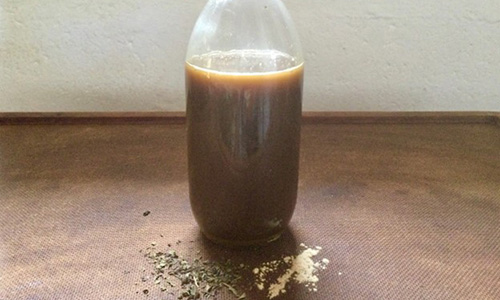
However, if you don’t have the time, the tools, or the place where you can source your ingredients, you can purchase the same tincture with the same ingredients from here. It’s made by one of America’s top herbalists, and all the herbs in it are either wild-harvested or organically grown – which not a lot of supplements can claim!
Nature’s Adderall might just become one of the most sought-after remedies once a crisis strikes, pharmacies get looted, and hospitals are overcrowded.
You can find this information and more in the Anxiety and Stress Protocol (page 150) and Sleep Protocol (page 286), which are just two of the 45 health protocols from The Holistic Guide to Wellness: Herbal Protocols for Common Ailments.
Other protocols include Depression, Brain and Nerve, Rheumatoid Arthritis, Lungs and COPD, Leaky Gut, Gastritis and IBS, Hair Loss, Liver Health, Flu, Viral and Immune System, etc. Check out the protocol you’re interested in here.
You may also like:
Frequently Asked Questions
Exploring natural alternatives to Adderall can offer a safer approach to enhancing focus and energy. Below are some frequently asked questions about these herbal options:
What is “Nature’s Adderall”?
“Nature’s Adderall” refers to natural remedies, particularly certain herbs and supplements, that aim to boost focus, energy, and alertness without the side effects associated with prescription stimulants. A notable example is a combination of Ashwagandha and Lemon Balm, which together can support cognitive function and overall well-being.
How do Ashwagandha and Lemon Balm work together to enhance focus?
Ashwagandha is an adaptogenic herb known for its ability to reduce stress and improve cognitive function. Lemon Balm, part of the mint family, has uplifting properties that can enhance mood and mental clarity. Together, they create a synergistic effect that promotes sustained attention and mental alertness.
Are there any side effects associated with these herbal alternatives?
While Ashwagandha and Lemon Balm are generally considered safe for most people, some individuals may experience side effects such as digestive discomfort or allergic reactions. It’s important to consult with a healthcare professional before incorporating new herbs into your regimen, especially if you have existing health conditions or are taking other medications.
How can I prepare a natural supplement using Ashwagandha and Lemon Balm?
A popular method is to create a syrup combining both herbs. This involves brewing a concentrated tea from the herbs, then mixing it with a natural sweetener like honey to form a syrup. This syrup can be taken daily to support focus and energy levels. The recipe is above.
Can lifestyle changes complement the effects of these herbal remedies?
Absolutely. Incorporating regular physical activity, maintaining a balanced diet rich in whole foods, ensuring adequate sleep, and practicing mindfulness techniques can all enhance the effectiveness of herbal supplements in improving focus and energy.
Are there other natural alternatives to Adderall?
Yes, several other natural supplements and herbs, such as Ginkgo Biloba, Rhodiola Rosea, and L-Tyrosine, have been explored for their potential to improve focus and cognitive function. However, their efficacy can vary among individuals, and it’s important to research and consult with a healthcare provider before starting any new supplement.


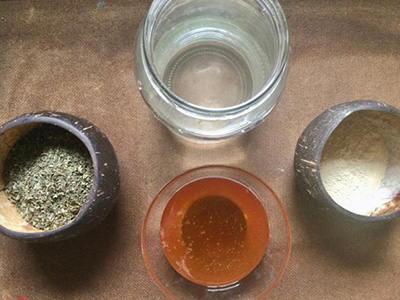 What You Need for Nature’s Adderall
What You Need for Nature’s Adderall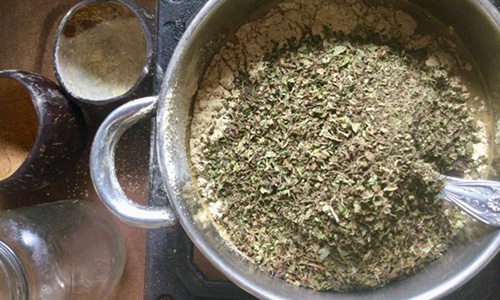
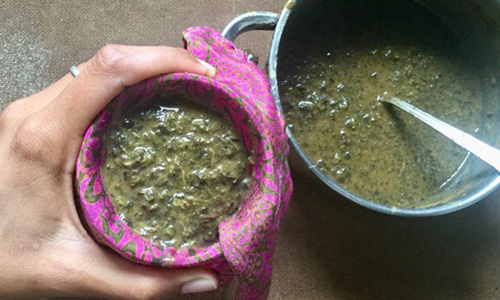
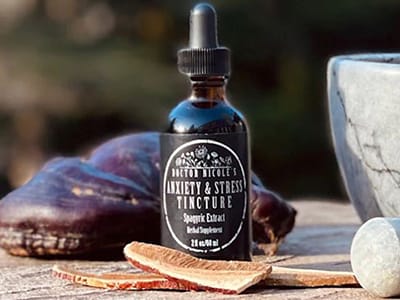
Looks interesting. What is the recommended dosage?
500 mg twice daily info from Mayo clinic
This would be 0.5ml twice daily then. That doesn’t sound right to me!
Her tincture that you can buy states dosage is 40 drops 2-3 times daily.
But in what amount and frequency should this be taken? Can it be frozen or otherwise preserved (besides adding alcohol)?
What’s is the dosage??
What is the dosage? Does the book sell on Amazon as the shipping is more than the book to Canada. Thank you
Can this be used for a 3 year old child?
I would also like to know the dosage for the tincture in the recipe. What amount of alcohol would I add to extend the preservation? I own your List Book of Herbal Remedies but it doesn’t give information on blending two herbs.
Please send the dosage.